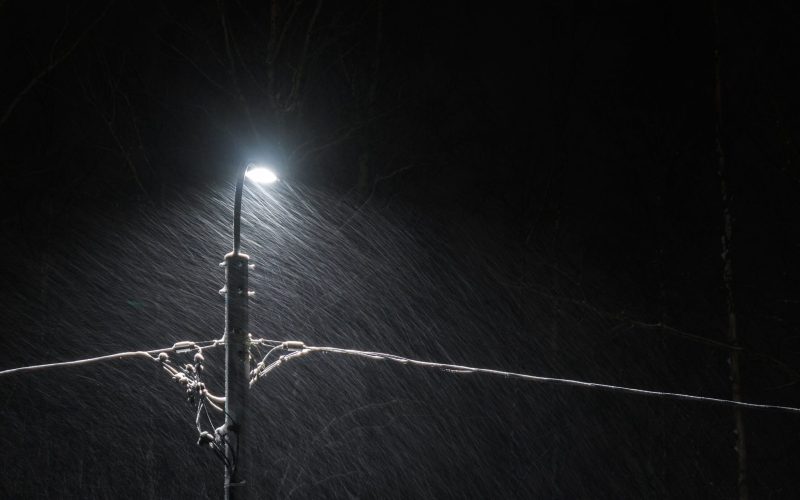Powering Through the Storm: How UPS Systems Protects Against Weather-Related Outages
As the clouds gathered ominously over Johannesburg, a violent storm will unleash its fury, and may plunge the city into darkness… If this is the first warning on your phone as you emerge form the internet blackness during loadshedding, you may want to read this article.
South Africa has always been dealing with the effects of extreme weather on its power supply. Uninterruptible power supply (UPS) systems plays a crucial role in protecting homes, businesses, and critical infrastructure from power outages caused by storms and floods , as it has done to alleviate the negative effects of loadshedding.
Due to its diverse landscape, which includes both coastal and dry regions, South Africa is constantly confronted with a wide range of meteorological conditions. There has been an ongoing problem with the effects of extreme weather on the reliability of the power grid, which calls for creative methods to keep the lights on. Given this, UPS’ stand out as an essential part of South Africa’s energy infrastructure’s resiliency. UPS Systems Protect Against Weather-Related Outages by providing uninterrupted power during storms or extreme weather. Read more.
The greatest method to keep a business running smoothly is to prepare for power outages. One option is to have all computers, workstations, and other electrical devices protected by an uninterrupted power supply (UPS). To find out more about the best printers for sale in South Africa, or our affordable copier rentals, get in touch with a consultant today. We also offer SME financing options too.
Emergencies Caused by South African Weather
The many climates of South Africa put its electrical grid at risk from a wide range of weather-related threats. Power outages can occur due to a number of natural disasters, including lightning strikes, floods, and extremely high or low temperatures. For example, tropical cyclones affect the eastern regions, whereas winter storms hit the Western Cape. We need energy solutions that can withstand the storm, because these climate variations are becoming worse due to climate change.

The Power Grid as It Is Right Now
It is not easy for the South African power grid, which is overseen by Eskom, to keep the lights on all the time even on good weather. Bad weather breeds thestuff nightmares are made off at Eskom.
The grid is more vulnerable to interruptions caused by weather because of its ageing infrastructure and the rising demand for electricity. While load shedding is necessary for grid stability, Eskom’s efforts to establish it as a preventative measure highlight how vulnerable the current system is.
New Developments in UPS Technology
In this unstable energy environment, UPS systems stand out as a technological shield against the effects of power outages caused by bad weather. Modern UPS systems have come a long way since they were first created. They are no longer just backup power sources; they are now smart and flexible energy management systems. With their advanced inverters, batteries, and tracking features, these systems make it easy to switch between grid power and backup mode, so there is always electricity when the power goes out.
The addition of lithium-ion batteries to UPS systems is a big step forward. These batteries improve the general performance of UPS systems because they have a high energy density, last longer, and can be charged and discharged quickly. Because lithium-ion batteries can work in a wider range of temperatures, they are perfect for South Africa’s varied weather. This new technology is a big change in what UPS can do. It makes the system more robust and effective for outages caused by bad weather.

How UPS Systems Help Combat Power Grid Problems Caused by Severe Weather
The importance of UPS systems in improving energy stability is shown by the following key points:
When the power goes out, UPS systems switch to battery mode automatically and without a hitch in milliseconds. This instantaneous change makes sure that vital systems always have power, so businesses, hospitals, and other important services don’t have to shut down.
Voltage Regulation and Surge Protection: Lightning hits and other weather-related events can cause voltage changes and surges that can damage electronics. With their voltage regulation and surge protection features, UPS systems protect linked devices from damage, making them last longer and lowering the risk of data loss.
Adaptive Energy Management: Newer UPS systems have smart energy management features that change based on the situation. In the event of a long power outage, UPS systems can prioritise vital loads, keeping important equipment running. This ability to change is especially useful in situations where power outages caused by bad weather could last for a long time.
The ability to remotely monitor and diagnose UPS systems is made possible by the integration of smart technologies. This capacity enables the rapid detection of anomalies, the proactive identification of possible problems, and the real-time evaluation of system health. During severe weather-related outages, remote monitoring makes UPS systems more reliable generally.
Modular and Scalable Design: UPS systems that are both scalable and modular are a flexible option that can adapt to changing power needs. Commercial and public buildings in South Africa must be able to scale in response to changing power resilience requirements caused by the country’s unpredictable climate and pressurised power grid.
We recommend you check why every business needs a UPS, if you liked this article. Contact us for more information.
